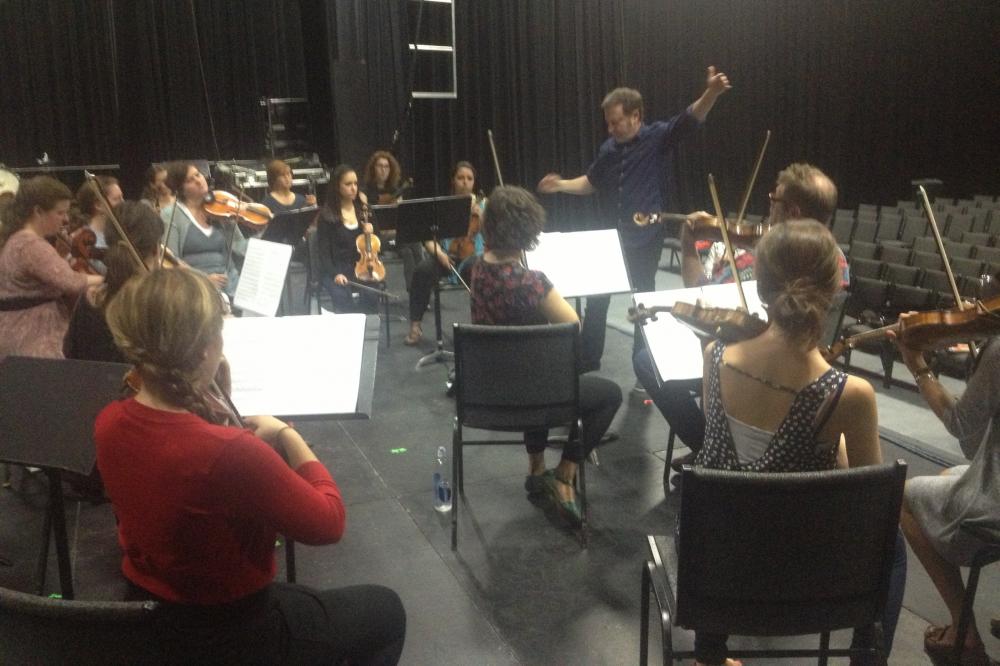The music of Beethoven and Bach gets a lot of attention in the Berkshires every summer. But amid the more august offerings, there is a musical collective that wants to rip the powdered wig off traditional classical music. Playing the work of living composers, and using unconventional methods, they are interested in anything but a musical history lesson.
Leading a string ensemble of about twenty musicians an hour before their public recital, conductor Brad Lubman gives his players an unusual criticism—they sound too polished, clean, locked in with each other.
“What I’m getting is it all sounds like you’re going like [sings a note], lets go now [sings a note]. It shouldn’t be that way. It should be disturbing.”
These players face a sort of pressure that’s not so common for classically trained musicians—the composer of the piece they’re playing, Julia Wolfe, is sitting right there in the front row of the otherwise empty auditorium.
Lubman has them try it again. He’s happy with the results.
Wolfe is one of three founders of Bang on A Can, a collective of musicians based in New York City who write and perform what’s known in the biz simply as new music—which is a less descriptive, but also a less oxymoronic term than “contemporary Classical,” which could also work.
Thirty-eight highly advanced music students, mostly in their 20’s and known as Fellows, are in residence at MASS MoCA in North Adams for Bang on a Can’s annual summer institute. It’s about 45 minutes north from the much more widely known training program at Tanglewood. The caliber of musicianship here is similar, but the daily agenda is a little different. It might include morning yoga, African drumming, and some work with Latin jazz. Or, as Wolfe points out, building instruments from spare parts.
“Really getting back to the fundamentals. What’s this tube, and how does this plastic tube—if you add some keys to it and a mouthpiece, that becomes an instrument. Well it makes you look at your own instrument maybe in a different way because you’ve now constructed one. Just trying to crack it open, and crack open how you think about making sound and making music,” she says.
The music here fits in with and sometimes plays off of the art on view in the MASS MoCA galleries. Wolfe’s piece was performed for a rapt audience in one of the larger galleries, underneath an undulating wave of translucent tubes created by Teresita Fernández and forming a sort of otherworldly cloud cover. Another piece was performed in the separate building devoted to Anselm Kiefer’s work—with all the lights shut off.
Sarah Goldfeather is a violinist who also leads an Americana band. She’s a Fellow here, and says that seeing the reactions of museum patrons who walk into a gallery recital, whether accidentally or on purpose, is part of the experience.
“Watching them come upon us playing music in a little corner—it’s fun to sort of share that with everyone. Some people are maybe expecting a different kind of music when they go to a concert, and they say: ‘Oh, this is unusual. New music. OK, this is not Mozart.'”
Things wrap up here on Saturday with the Bang on a Can marathon, six hours of music by both fellows and faculty, including special guests like Wilco drummer Glenn Kotche, and the composer Steve Reich’s re-working of two songs by Radiohead.
Mozart has the day off.
